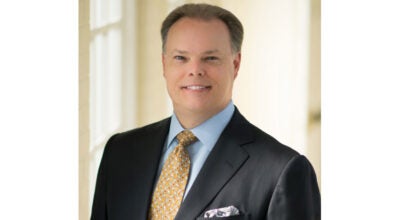Including the exclusive
Published 1:42 am Saturday, March 9, 2019
By Nathan Decker
“All religions develop, become exclusive, become divisive and quarrelsome.”
– Deepak Chopra, American philosopher
We have always struggled with the circle. We want to draw a circle. We want it to tell us who we are, set the boundaries, and illustrate to the world the core beliefs we hold sacred. The circle gives us the feeling of belonging, purpose and support. The circle defends us and gives us something to defend. Like circumcision or baptism, the circle we draw defines us, makes us other and gives us a called feeling that we are holy and set apart. We are God’s people, blessed and blessing the world through how we are different.
And yet we hate the line that creates the circle. The line divides us and makes us exclusive. The line creates not just a boundary but also a barrier that somehow makes us see folks on the other side as different, not us, and “those people.” The acknowledgement of difference tastes foul in a culture desiring everyone to feel special. How do you possibly say “God loves everyone” and still hold to an afterlife of heaven and hell? How do we welcome everyone, but still have unity in diversity? What holds us together if we don’t have something that sets us apart?
In the Bible, God’s story shares this paradox of being a unique people while sharing a universal love. The prophet Jonah, by way of a big fish, is sent to his people’s enemy to offer not only God’s judgement but also repentance. Psalm 23 states, “You prepare a place for me at the table in the presence of my enemies.” This means even the enemy is allowed at the table. And speaking of tables, how often we forget that Judas Iscariot, the one who betrays our Lord, was served communion at the Last Supper by Jesus. We have the tragic task of including the exclusive.
We have to draw a circle continually. We have to draw it wider and wider. Those who advocate for a tight circle of rigid rules will find their stern stubbornness constricts their ability to grow and thrive. The line Jesus gives us is one of grace. The law Jesus handed us is one of love. The interpretation through Jesus is always one of compassion and mercy. The accountability with which we are called to hold one another is an accountability of love not an accountability of chains. The circle we draw is a never-ending arc that spirals wider and wider to bring all closer to the center.
God’s universal love loves even those who love not. Even Pharisees like Nicodemus and Joseph of Arimathea are given a part to play. Collaborating tax collectors like Zacchaeus and Matthew are invited to do ministry with their radical archenemies Simon the Zealot, James and John. We have to fight to be a church that refuses to take the easy path of closing the boundaries of the circle. If God is love, if grace is true, then we continue drawing the circle until it becomes a spiral bringing us all closer to Divine Love. Welcome the unwelcomed. Welcome the unwelcoming. Love the unlovable. Love the unloving. After all, it’s what Jesus would do.
“He drew a circle that shut me out — Heretic, rebel, a thing to flout. But love and I had the wit to win: We drew a circle and took him In!”
– Edwin Markham




